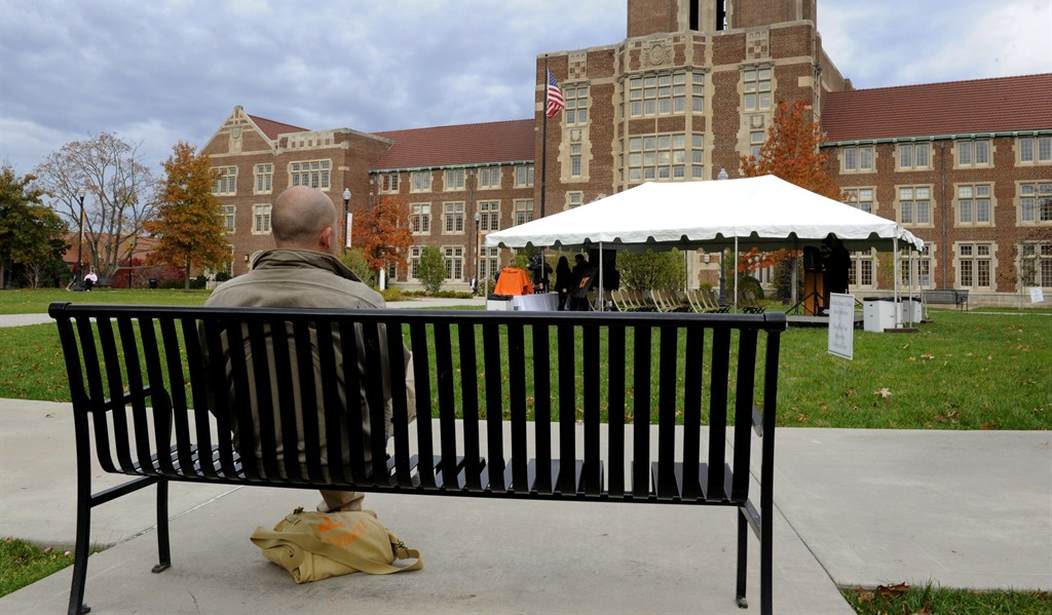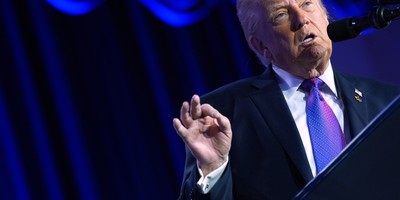When American parents send their children off to college, the deluge of emotion can be overwhelming. No matter how much time and money you spent preparing yourself for this most pivotal transition in the life of your child, you always feel as though you could have done more. Will they succeed? Will they be safe? Will I get a positive return on my investment in the form of a good job and happy life for my child? What exactly is it that I've spent the last decade saving for? What is a college education, really, and why is it important?
In recent decades, these questions have become increasingly urgent. For all the billions spent on higher education, it seems as though our nation's youth are graduating from college without much in the way of an education. There is a general consensus that there is a dumbing down of America underway. Of course, there are the obvious culprits. Too much sex, too much partying, too many distractions in general. Parents bear a good share of the blame for raising a generation of narcissists who lack the humility and work ethic to succeed. But there's another, more fundamental issue at play when it comes to the obvious shortcomings of higher education in America today. There is a growing recognition that our move away from the classical understanding of what constitutes a proper education -- and the ends of that education -- is largely responsible for the problems we're seeing in the classroom, the workforce, and the culture at large.
Most American universities are founded on the classical liberal model of education. According to Wikipedia, "the liberal arts (Latin: artes liberales) are those subjects or skills that in classical antiquity were considered essential for a free person (a citizen) to know in order to take an active part in civic life. . . The aim of these studies was to produce a virtuous, knowledgeable, and articulate person." This model is less concerned with equipping individuals with a particular skill set needed to excel in a particular career, and more with cultivating a well-rounded, thoughtful individual with the capacity to engage the world of ideas with vigor and intelligence. The classically educated person is not only concerned with the "how's" of life, they are concerned with the "what's" and "why's." This person believes that there exists an objective truth, and that the good life consists in the quest for and contemplation of that truth. From these principles flow his or her conduct as a human being.
Recommended
A Catholic blog devoted to the subject of classical education describes it thusly:
"Liberal education is about reading and discussing the canon of authors to whom Western Civilization owes its origins. It is about immersing oneself in the very sources of civilization holding fast to its elements and principles, to time honored truths and traditions; to the vision of all those who contributed to civilization. . . .
The end of liberal education is not first "to think for oneself," but to know the truth. To know the truth that makes one free -- this is the end of liberal education. Liber and libertas, in Latin, denote freedom, as opposed to servility and the servile. Liberal education is the education appropriate to free men and is a source of that freedom. Liberal education, this encounter with and conformity to the truth, frees man from enslavement to unruly passions, ignorance, current intellectual trends and public opinion. Once freed from these bonds, a man may choose to live a good life, hold to the truth, and delight in beauty -- not to please others or gain some practical reward, but simply because these things are good, or true, or beautiful."
To know the truth -- this was the original end of education according to the classical liberal model. Contrast that with the motives that guide education today. You hear a lot about preparing students for "global competitiveness," fostering "the free exchange of ideas," encouraging diversity, enabling the realization of individual potential, etc. These are all good things, of course, but the problem is that instead of appreciating them as goods that derive from the pursuit of truth, we've elevated them as educational ends in themselves. Thus many tracks of study in today's university setting either resemble glorified technical training on one extreme, or a highly-individualized, build-your-own major model that allows students to focus intently on one area of interest without any proper foundation in the classical subjects.
The result of this approach to education leaves a lot to be desired. American universities are not producing virtuous, thoughtful, keen-minded citizens. Many would argue they are barely producing functional citizens at all. Leon Wieseltier of The New Republic spoke to this issue in a commencement address at Brandeis University this spring. His message was one of encouragement in which he challenged graduates to view themselves as stewards of the really human things: those things that used to constitute a good education but have been rejected in favor of the new American model:
"For decades now in America we have been witnessing a steady and sickening denigration of humanistic understanding and humanistic method. We live in a society inebriated by technology, and happily, even giddily governed by the values of utility, speed, efficiency, and convenience. The technological mentality that has become the American worldview instructs us to prefer practical questions to questions of meaning -- to ask of things not if they are true or false, or good or evil, but how they work. Our reason has become an instrumental reason, and is no longer the reason of the philosophers, with its ancient magnitude of intellectual ambition, its belief that the proper subjects of human thought are the largest subjects, and that the mind, in one way or another, can penetrate to the very principles of natural life and human life...
You who have elected to devote yourselves to the study of literature and languages and art and music and philosophy and religion and history -- you are the stewards of...quality...In upholding the humanities, you uphold the honor of a civilization that was founded upon the quest for the true and the good and the beautiful. For as long as we are thinking and feeling creatures, creatures who love and imagine and suffer and die, the humanities will never be dispensable. From this day forward, then, act as if you are indispensable to your society, because -- whether it knows it or not -- you are."
In rejecting the objective truth of the classical model in favor of a subjectively defined, instrumentally-oriented model, we're undercutting our ability to flourish as a society. We no longer care for the answers to the big questions, heck, we no longer feel compelled to ask the big questions! Education is seen as merely a means to individual ends, whether those ends are monetary, ideological, political or otherwise. The idea that education should be more than a tool for individualistic self-actualization may sound blasphemous to the modern ear, but it's an idea we'd better reacquaint ourselves with if we care about the future of our nation and the souls of our children and grandchildren.
A nation of pragmatic narcissists will not long endure, for when there is no thirst for truth and no one to guard and transmit the things that make us human, we'll quickly give ourselves over to our baser impulses, social cohesion will unravel, and culture will crumble. Americans take their freedom for granted, viewing it as a birthright. As the parable of the Prodigal Son teaches us, however, a vast inheritance can be easily squandered by an ungrateful and immoderate heir. The American experiment is our inheritance, and it is a fragile and precious thing. We neglect and undermine it at our peril.

























Join the conversation as a VIP Member